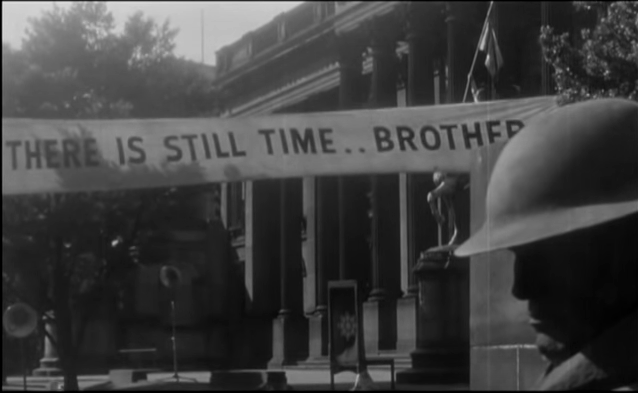Good question.
Until three weeks ago, when I first sat down in the Millstein-West AB lecture hall at Harvard Law School, I had no idea.
People asked me, “What’s this thing you’re doing at Harvard?”
To which I’d shrug, and joke about how we were going to magically fix computer security over the course of four months. And maybe rewrite the laws of thermodynamics while we were at it.
The truth of the Assembly is far more practical, but no less magical.
For two weeks we were treated to an intense lecture series, dubbed “Internet & Society,” by Harvard Law professor Jonathan Zittrain and MIT Media Lab boss Joi Ito.
A week after class finished, nothing echoes in my head so much as the laughter.
What is this new world we have built for ourselves–what is this thing–this internet?
By turns delightful, charming, disturbing, occasionally (often?) gross–but always weird–the internet, as chronicled by Zittrain & Ito, provoked nothing so much as laughter.
Not mirth. But the laughter of a child at an especially gruesome clown–or the first sight of an elephant–a teenager’s first slasher flick–a caveman holding fire for the first time. Ever.
The gaspy, rasping laughter of Colonel Kurtz at the end of Apocalypse Now:
What have we built? What Promethean fire do we now hold, wildcat by the tail, hoping and praying somehow to survive?
We stand in the doorway. No Singularity, no black monolith a la Arthur C. Clarke awaits. But our stories and our fears and our hopes and our dreams reveal the truth: We are becoming something else.
If “the human” is “animal that makes tools,” then what could be more human than to make tools of such sophistication and complexity and power that we lose ourselves to the machine?
Some call this progress–an irresistible, inevitable advance of technology for much benefit world peoples. Others paint a gloomier picture of man become machine, souls sold at millisecond-long auctions to display advertising–and not even good advertising, at that.
Don’t drink the Kool-Aid. But perhaps avoid the hemlock too. Will we remain flesh but lose our values, or become pure values and lose our flesh? Joi asked in class.
Probably neither.
We will muddle along, killing and enslaving each other with each new wave of technology-inspired bloodshed, punctured by occasional bursts of enforced “peace.” We will lie to each other, cheat each other, and stab each other in the back–all for a poisoned pile of money or power…poisoned by our own mortality, for what profiteth a man to gain the world, only to discover, when flesh withers, the utter pointlessness of it all?
But we will also love each other, and comfort each other, and build masterpieces of sculpture in the shifting sands of time. We will succor each other in the face of our own humanity, the horror bearable only in the companionship of our fellow travelers on this painful, astonishing, unique journey from primordial squirt to disintegration of the bodies we do not inhabit so much as are.
The cyber domain, in which we now live, changes none of this. Rather it distorts, distends, amplifies, and twists us like funhouse mirrors at a cheap carnival.
We must not make the mistake of thinking we are powerless in the face of this awesome monstrosity. The juggernaut need not crush us–although some will surely throw themselves before it in some techno-utopian inspired ecstasy.
We are actors in this drama. Not spectators. Powerful forces lean heavy on the scale, but wise innovation, projected asymmetrically, can change the balance of power, and give voice once more to the weak, the oppressed, the colonized, the exploited.
I think of nothing in this moment so much as the final image of On the Beach, the nuclear holocaust dystopia agitprop from the 50s:

Avert your eyes. Think of something else.
Because maybe there is time and maybe there isn’t. I don’t know. But I do know that defeatism is a self-fulfilling prophecy. Let us do, and let us do well, and do now. Let us change the world or go down swinging.
That is all.
And that is what I hope the Assembly will become: a place where engineers from the world’s biggest tech companies come for perspective–and, armed with the view from 30,000 feet, work to secure the weak from the powerful, the plundered from privateers, the people from the state, to ask what democracy looks like on the cyber domain–and then build that.

Recent Comments